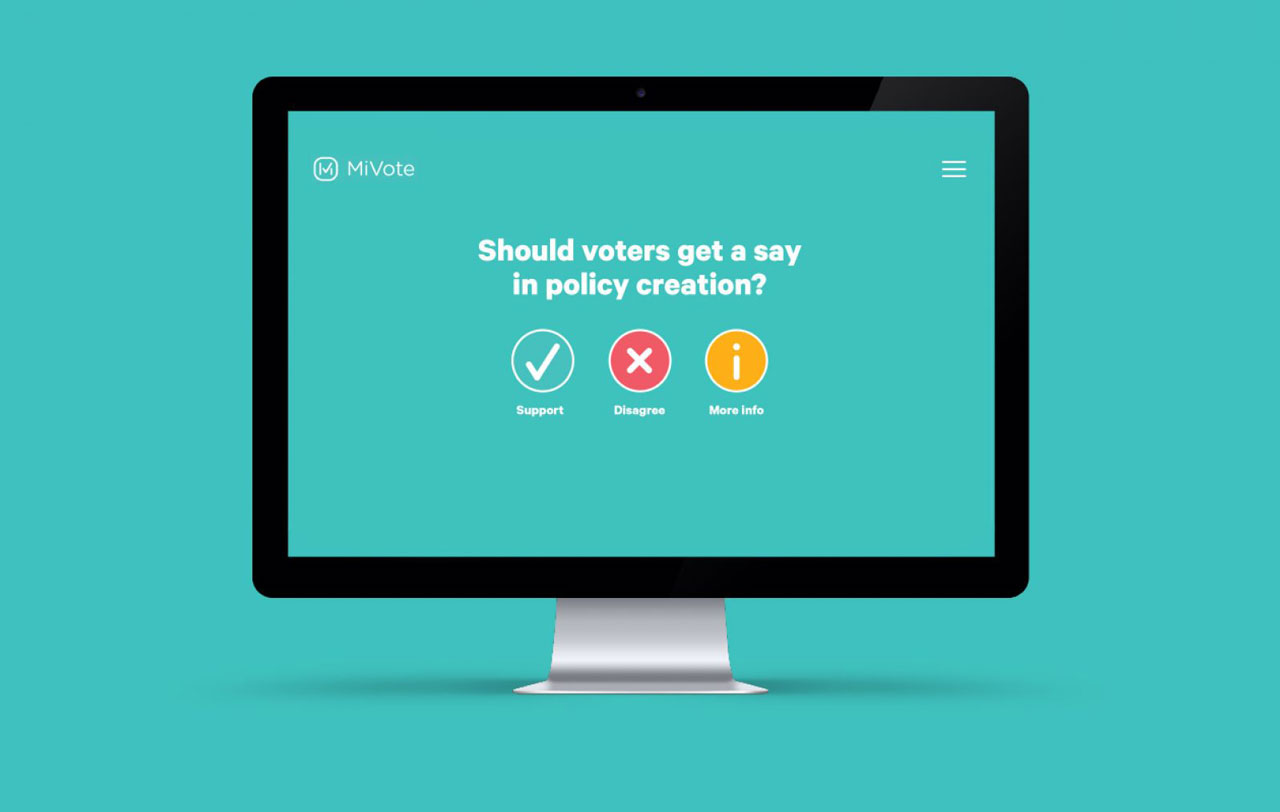Adele Peters at FastCo-Exist: “…a new app and proposed political party called MiVote—aims to rethink how citizens participate in governance. Instead of voting only in elections, people using the app can share their views on every issue the government considers. The idea is that parliamentary representatives of the “MiVote party” would commit to support legislation only when it’s in line with the will of the app’s members—regardless of the representative’s own opinion….
Like Democracy Earth, a nonprofit that started in Argentina, MiVote uses the blockchain to make digital voting and identity fully secure. Democracy Earth also plans to use a similar model of representation, running candidates who promise to adhere to the results of online votes rather than a particular ideology.
But MiVote takes a somewhat different approach to gathering opinions. The app will give users a notification when a new issue is addressed in the Australian parliament. Then, voters get access to a digital “information packet,” compiled by independent researchers, that lets them dive into four different approaches.

“We don’t talk about the bill or the legislation at all,” says Jacoby. “If you put it into a business context, the bill or the legislation is the contract. In no business would you write the contract before you know what the deal looks like. If we’re looking for genuine democracy, the bill has to be determined by the people . . . Once we know where the people want to go, then we focus on making sure the bill gets us there.”
If the parliament is going to vote about immigration, for example, you might get details about a humanitarian approach, a border security approach, a financially pragmatic approach, and an approach that focuses on international relations. For each frame of reference, the app lets you dive into as much information as you need to decide. If you don’t read anything, it won’t let you cast a vote.
“We’re much more interested in a solutions-oriented approach rather than an ideological approach,” he says. “Ideology basically says I have the answer for you before you’ve even asked the question. There is no ideology, no worldview, that has the solution to everything that ails us.”
Representatives of this hypothetical new party won’t have to worry about staying on message, because there is no message; the only goal is to vote after the people speak. That might free politicians to focus on solutions rather than their image…(More)”